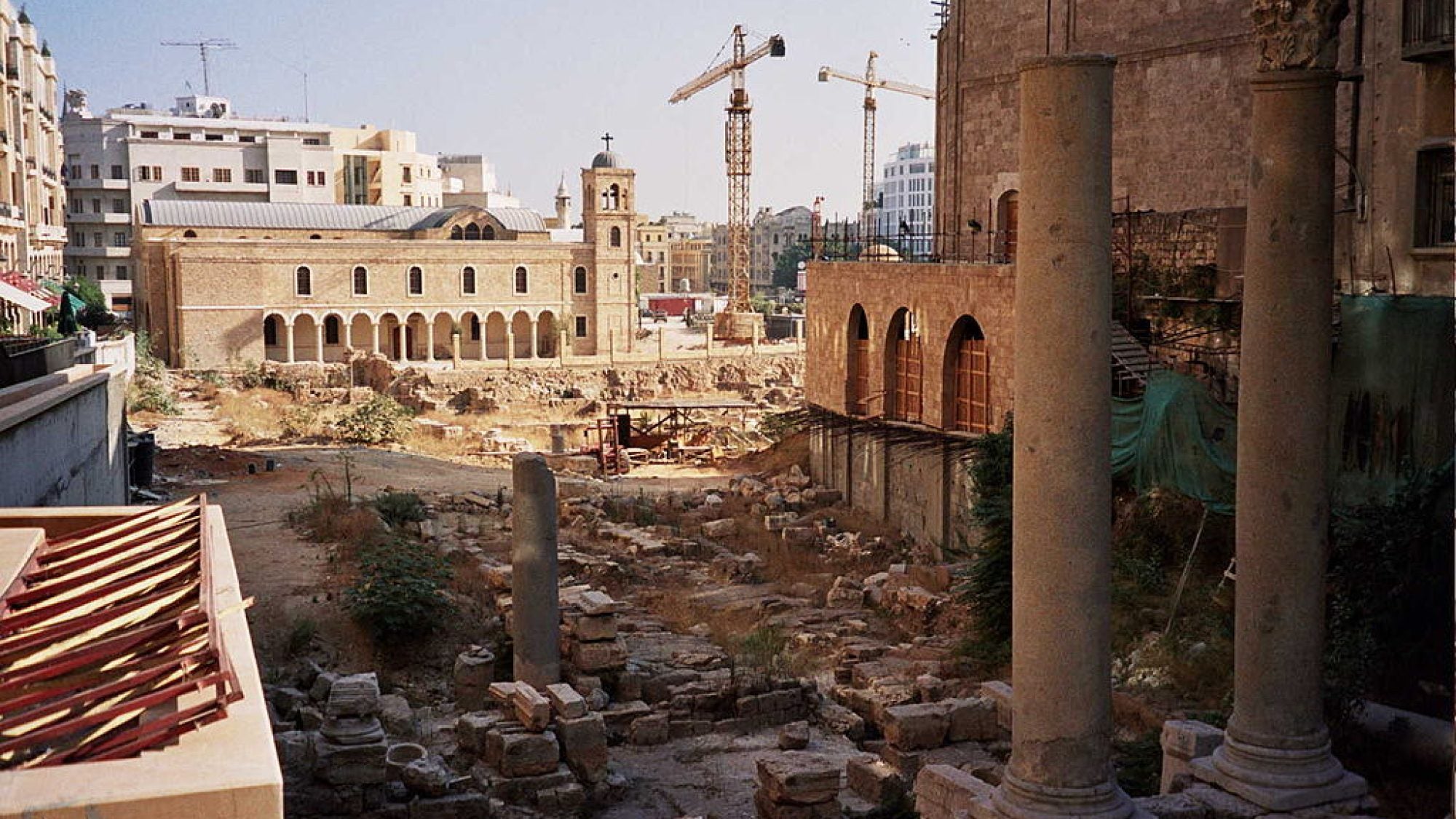
Title: View From Beirut: Failures of the Lebanese Political System
Lebanon belongs to a class of places whose names evoke visceral images unable to fade into history. Perhaps only Bosnia, Darfur, and Somalia carry the implied violence and turmoil that Lebanon does. In the media, Lebanon is usually regarded with reference to either its neighbors in the region or Hezbollah. When you visit Lebanon, you will be struck first by how the mountains seemingly rise from the sea, and then by the vibrancy of Beirut after dusk. Only after a week one tends to notice the bullet-pocked buildings and militia banners on every street. Though powerful, none of the aforementioned narratives are sufficient for understanding Lebanon.
Lebanon is, for lack of a better phrase, a failed state. Living there, I have found this as the most important, yet least understood, fact in attempting to grant Lebanon its proper context. Although the country is structurally democratic, it is rarely referred to as such, and for good reason. Lebanon has a regional reputation for education, sophistication and multilingualism, but the state hardly functions. The British journalist Robert Fisk put it well: “Lebanon is like a Rolls Royce with square wheels.”
The Lebanese government is well-known for its confessional system. Lebanon allocates parliamentary seats based upon eighteen officially recognized sects, a system dating back to the French mandate. The president is always a Maronite Christian, the prime minister a Sunni Muslim, and the speaker of parliament a Shia Muslim. The cabinet has representatives from the remaining sects. After a 15-year Civil War that mainly fell upon sectarian lines, a political system that requires inter-sect compromise is bound to be incompetent.
Furthermore, the government offers essentially no social services, forcing citizens to look toward the political parties for aid. These parties grew from militias formed during the Lebanese Civil War, and established a patronage system in which Lebanese society is now entrenched. I once asked a friend how she got her job at a hospital. She replied that her father (a member of the Lebanese Forces, a Maronite militia) asked a minister, and the hiring was handled by the party—the same way her family received their newest car. In the Arab world, this type of patronage is referred to as wasta, roughly meaning “connections.”
It is not baseless cynicism to contend that party leaders prefer the status quo to government allotment of services. Lebanese politicians regularly leave office richer than when they entered. A Wikileaks cable showed that the Lebanese Speaker of Parliament Nabih Berri has amassed $2 billion since taking office. Former Prime Minister Rafik Hariri’s fortune, worth $1 billion when elected in 1992, grew to $16 billion before his assassination in 2005. The current patronage system lacks the transparency and taxation required for a national policy, instead allotting services to citizens in return for their political allegiance. It also allows the parties to justify their own autonomy by invoking government incompetence, which keeps the government perpetually weak. The system is incredibly wasteful, corrupt, and unable to address issues that only a central government can address.
But instead of demanding better governance from their party leaders, the Lebanese tend to blame the system itself, while reaping in the benefits of the client-patron relationship.
Hezbollah is another indicator of the failures of the Lebanese central government. Many foreign governments contend that Hezbollah should not exist (stressing Hezbollah’s conflict with Israel), but why Hezbollah exists is a more telling quandary. Although its involvement in Syria, coupled with a rising Salafist movement, have seriously dampened domestic support for “God’s party,” Hezbollah’s support continues to stem from its ability to provide citizen services far better than the government. Hezbollah’s “March 8” party is the ruling coalition today, yet the Lebanese government has never been weaker, illustrating how political parties prefer to provide services separately, instead of through the state.
Lebanon—that name so synonymous with strife—was one of the few Arab states to retain political stability during the so-called “Arab Spring.” Yet, while Western governments contemplated intervention in Libya and Syria, and toiled over Egypt and Yemen, Lebanon has gradually decayed.
Since I arrived in Beirut nine months ago, Lebanon has faced attempted political assassinations, bombings, an influx of nearly one million refugees, continuous clashes in the north, a decline in economic growth, and Hezbollah’s entrance to the Syrian Civil War. These stories often appear around page eight in The New York Times, but the important and untold story is that Lebanon’s inept government is grossly unfitted to confront these solvable issues. Lebanon bears neither the swiftness of an authoritarian regime, nor the legitimacy of a democratic one. With increasing sectarian tensions and a government unable to provide stability, Lebanon inches ever closer to rupture. Like Syria, it is likely to receive the requisite attention only once it is too late.
Image Credit: upyernoz from Haverford, USA, CC BY 2.0 <https://creativecommons.org/licenses/by/2.0>, via Wikimedia Commons
This is an archived article. While every effort is made to conserve hyperlinks and information, GJIA’s archived content sources online content between 2011 – 2019 which may no longer be accessible or correct.
More News

We in the United States have long held one narrative of the Middle East—one of political instability, sectarian unrest, and oligarchs protecting great wealth in the hands of way too…

When the Georgetown Journal of International Affairs launched this online edition, I suggested that it address “human rights and human dignity.” Why dignity? As Anthony Clark Arend and I explore…

Georgetown professor Matthew Kroenig sat down with the Georgetown Journal of International Affairs to discuss his attendance at a recent meeting with Iranian President Hassan Rouhani in New York.